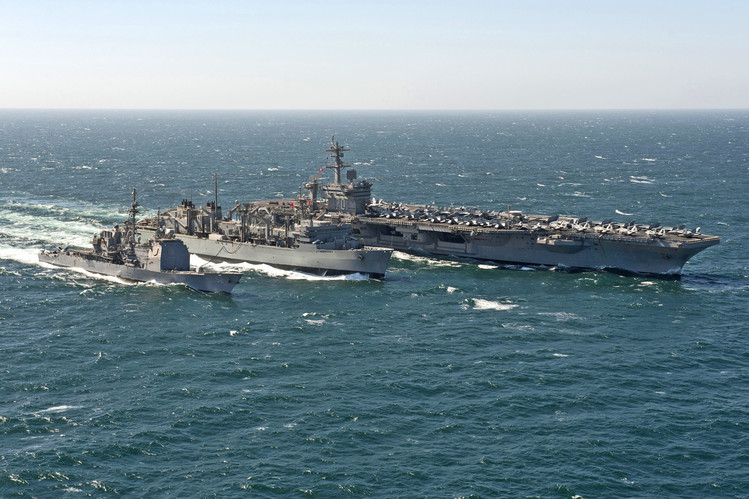Alwaght- Maintaining regular Middle Eastern oil imports is China’s most important concern. Would China replace the US government in securing the Persian Gulf region?
In the last decade, the US nation’s dependence on oil has decreased. Yet the Chinese scale of dependence on this vital resource has elevated significantly. Maintaining regular exports of the Middle East oil is one China’s major concerns, while the US is still the most important supplier of security in the Persian Gulf.
China continues to develop its geo-economic expansion, exporting its products to the Middle East and importing a vast quantity of oil. Recently, China has already became the biggest oil-importer, putting the US itself and the European Union behind. Chinese trade with the Middle East has grown from around 20 billion USD last decade to 230 billion USD last year. It is estimated that the trade volume will exceed 500 billion USD by 2020. Last year, the era of an economic focus of the oil-rich Persian Gulf states on the US and the EU has ended, when China replaced the EU as the region’s most outstanding trading partner, putting the US at the second place.
China conducts around 70 percent of its total trade with the six oil-rich Arab state; members of the Persian Gulf Cooperation Council (GCC). Saudi Arabia is China’s largest source of imported oil, ahead of the Islamic Republic of Iran. Where the GCC states account for around one-third of China’s oil imports. Given these extraordinary Chinese economic interests in the Middle East, Beijing increased its involvement in the Middle East in various areas.
China shapes its foreign strategy in the Middle East to contrast the miscalculated US strategy in the region. Beijing does not aim to entangle itself the chaotic geo-politics of the Middle East, but rather its intentions to secure its economic interests without triggering any political tensions in the region, unlike the US government. The US governments’ strategies were based on the classic “divide and rule” strategy, however, in order to secure its trade deals, China tends to oversee the tensions from distance and try to reduce their implications.
This strategy can be observed in the on-going Syrian crisis. Chinese government went ahead requesting for securing its national interests, regardless of whether it believes President Bashar Al Assad re-election was free or not, rather than waiting for a ‘real and democratic’ government to come in place.
Nevertheless, the question here, could China play such a role and replace Washington in securing the region?
The answer to this question depends on three factors: first, Beijing’s desire to secure the Persian Gulf, second the Chinese military’s ability to do the job, and the likelihood that the US will accept to lose its interests as a guarantor of energy security.
If the US finds the alternative guarantor of energy security and leaves the Persian Gulf, then China will have no choice but to try to fill the gap. In this situation, Beijing will increase its investments in the Navy and other features to demonstrate its capabilities in securing the region. China will also strengthen its engagement with the region’s states. China might be forced to provide security for oil production in the Middle East in few years rather than in decades.
However, notwithstanding China’s ambitious project and its potential to trigger development in the region, China cannot simply replace the US in the region; for, China cannot hope to take full advantage of its project in such a chaotic situation as it is today. It seems that China needs the US, at least for the time being, to manage crisis.



























